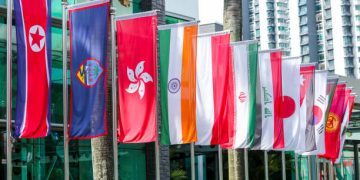Supplychain report – The recent tariff measures imposed by the United States could provide fresh momentum for strengthening trade within the Association of Southeast Asian Nations (ASEAN), according to Malaysia’s envoy to the Philippines.
“I think the current tariffs that have been affecting ASEAN would create the opportunity for us to do extra intra-ASEAN trade,” Malaysian Ambassador to the Philippines Abdul Malik Melvin Castelino said during an Asia Society forum in Taguig City on Tuesday.
He noted that ASEAN already has a free trade framework in place and that leveraging the bloc’s local manufacturing strengths could drive further regional growth.
The U.S. has applied tariffs on a number of trading partners, including ASEAN members, with rates reaching as high as 40 percent for some. The Philippines recently negotiated a reduced tariff rate of 19 percent, down from the 20 percent originally set.
Philippine Foreign Affairs Secretary Ma. Theresa Lazaro said the tariff environment may present opportunities for ASEAN to enhance internal trade and cooperation. She added that discussions among member states on expanding trade initiatives are “evolving.”
Castelino emphasized that Malaysia is encouraging its firms to invest more across ASEAN, including in the Philippines. “There is active push to increase and push for investments across ASEAN by governments themselves, and this was discussed in the meeting of the ASEAN trade ministers,” he said.
Looking ahead, Malaysia aims to finalize the ASEAN Power Grid (APG) initiative by the end of its chairmanship. The project seeks to link the electricity networks of the bloc’s ten members to promote energy-related trade. Castelino expressed confidence that the Philippines, as the next ASEAN chair, will build on these initiatives and further strengthen integration.
Lazaro confirmed that preparations are underway for the Philippines’ chairmanship and that Manila will soon present its priorities. She underscored ASEAN’s role as a hub of trade, innovation, and opportunity, pointing to the collective prosperity achieved by the region.
Since the launch of the ASEAN Economic Community in 2015, Lazaro said the bloc has advanced trade and investment, empowered businesses, and facilitated the free movement of goods, services, capital, and skilled labor.
ASEAN currently ranks as the world’s fifth-largest economy with a GDP of USD 3.8 trillion, and is projected to rise to fourth place globally by 2030.
#ASEANTrade #SupplyChainNews #EconomicIntegration #RegionalGrowth #NewsUpdate

















